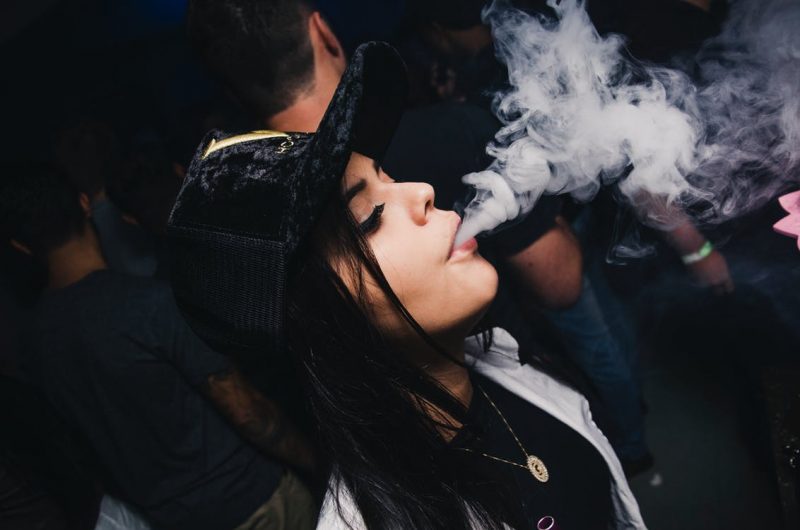latest
Could Massachusetts see change to tobacco laws?

By Chris Lisinski
State House News Service
Less than two years after Massachusetts became the first state in the nation to ban the sale of flavored tobacco products, one of the measure’s lead sponsors urged his colleagues to stand firm and reject a slew of industry-backed proposals that would carve out new exemptions.
A bevy of bills before the Public Health Committee target changes to the 2019 tobacco law, with supporters arguing that the policy pushed Massachuseetts consumers into other states and that the market has transformed since lawmakers last acted.
The proposals on display at a Wednesday committee hearing, which range from resuming sales of menthol cigarettes to authorizing some flavored products that federal regulators cleared for marketing, reignited debate about a state ban that continues to draw support from some medical organizations and criticism from both tobacco manufacturers and retail business interests.
Sen. John Keenan, a Quincy Democrat who helped lead the charge on the flavored vaping and flavored tobacco ban, told the panel on Wednesday that they should stand firm and reject proposed changes.
“We can’t open the door again. We have seen what happens over time whenever that door is left slightly ajar: the industry comes through, they target their marketing, they target young people,” Keenan said. “That’s what these bills are designed to do: to open the door again and allow young people to be targeted.”
One pair of bills (H 2406 / S 1433) would rewrite the flavor ban to limit it to electronic nicotine systems, often known as e-cigarettes or vaping products, rather than all tobacco products. Its backers aim to undo the prohibition of menthol cigarettes.
Jon Shaer, executive director of the New England Convenience Store & Energy Marketers Association, told lawmakers that the effort to rein in menthols “has failed in whatever goals it had intended for the products.”
Shaer said the Massachusetts ban pushed many consumers to neighboring New Hampshire and Rhode Island, which sold a large quantity of tobacco products including traditional cigarettes and flavored vapes in the 12 months after the Bay State’s prohibition.
“From a retailer’s perspective, this is very difficult to watch as your customers get the products they once bought in your stores and are now buying them in Rhode Island, New Hampshire or the guy on the corner,” Shaer said. “It’s particularly hard when the state cannot demonstrate evidence of any positive health-related impact as well.”
Backers of the menthol ban pressed lawmakers to keep it in place, describing flavors and menthol in particular as a known tactic that tobacco companies deploy to bring in new, often young users who will then get hooked on the nicotine their products contain.
Marc Hymovitz, director of government relations for the American Cancer Society Cancer Action Network, told the committee that menthol cigarettes have had a disproportionate impact on communities of color, who use menthols at higher rates than white smokers.
“This is not just coincidence,” he said. “Internal tobacco industry documents show that companies were intentionally targeting African American communities. The tobacco industry has used their insidious tactics for decades to continue to hook their customers and profit off of their health, so nicotine addiction will not end overnight.”
Lawmakers and Gov. Charlie Baker agreed to crack down on flavored tobacco amid a national outbreak of vaping-related lung disease at the time, which led to at least three deaths in Massachusetts and prompted the Baker administration to temporarily ban all vaping products.
Retail groups and tobacco manufacturers — who could benefit financially from the ability to expand their for-sale offerings — want the Legislature to reopen the market to some products that federal regulators have been reviewing.
The U.S. Food and Drug Administration allows manufacturers to seek approval to market modified risk tobacco products, which the agency says “must demonstrate that the product will or is expected to benefit the health of the population as a whole.”
Since October 2019, the FDA has granted a dozen modified risk orders allowing marketing of those products.
Bills before the Public Health Committee (H 2237 / S 2483) would lift the state’s flavored tobacco ban on any tobacco product given a marketing grant order or a modified risk order by the FDA.
Shaer said the past two years of activity at the federal level stand in contrast to the environment when state lawmakers approved a widespread ban on flavored tobacco products, calling for the Legislature to alter its approach in response to the changes.
“There were literally millions of flavored vape products on the market, youth vape rates were alarmingly high, and the federal government had not yet demonstrated action. Flash forward to today and we are in a very different world, driven largely by a tremendous amount of federal action,” he said. “Bottom line: the vapor market is a sliver of what it once was, and only FDA-approved products will remain legally available.”
The FDA’s process has dissenters, however.
Allyson Perron Drag, a government relations director for the American Heart Association, on Wednesday said the FDA “set a dangerous precedent that puts kids and the public health at risk” by authorizing the marketing of Philip Morris’s IQOS heated tobacco device as a modified tobacco product.
“With this action, the FDA has created real danger that kids and adults will falsely believe IQOS has been proven to present a lower health risk and that kids will be exposed to marketing that portrays IQOS, a highly addictive tobacco product, as an appealing, cool alternative to cigarettes, in much the same way that e-cigarettes did,” she said.
-

 Community6 years ago
Community6 years agoNational Shrine of La Salette Festival of Lights 2017 set to begin
-

 Community6 years ago
Community6 years agoMassachusetts State Police looking for good home for retired dogs
-

 Crime6 years ago
Crime6 years agoFall River ranked most dangerous city in Massachusetts according to report
-

 latest6 years ago
latest6 years agoDurfee student allegedly overdoses on marijuana
-

 Community6 years ago
Community6 years agoVideo of Fall River Police goes viral
-

 Causes6 years ago
Causes6 years agoMissing Fall River woman found deceased
-

 Crime6 years ago
Crime6 years agoFall River Police add names to most wanted list
-

 Causes6 years ago
Causes6 years agoFall River teenager reported missing has been found





